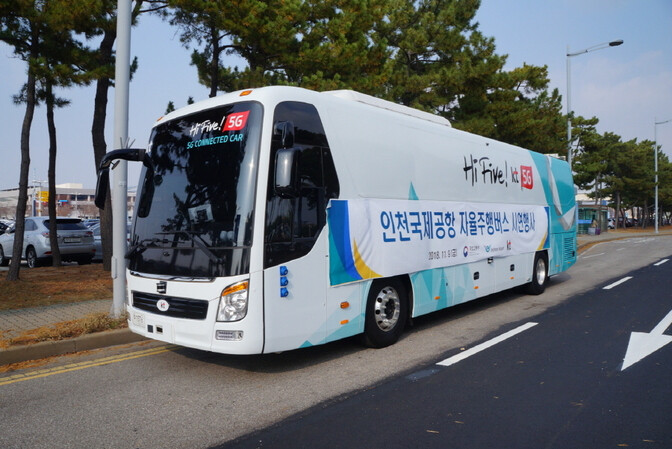
INCHEON, SOUTH KOREA – In a move towards embracing future mobility, Incheon International Airport Corporation (IIAC) has commenced a pilot program for self-driving RoboShuttle services connecting its Terminal 1 and Terminal 2, the company announced on Saturday.
This innovative service, a collaboration with Hyundai Motor Company, will see two autonomous vehicles operating on a 15-kilometer round trip route between the two terminals. Commencing operations on March 30th, the RoboShuttles will be available free of charge to all airport users.
The autonomous shuttles will run on weekdays (Monday to Friday), excluding lunch hours, from 10:00 AM to 4:00 PM. Traveling at speeds between 30 and 80 kilometers per hour, the shuttles will depart every 20 to 25 minutes and provide a direct connection between the terminals without any intermediate stops. For safety and contingency purposes, a human driver will be present on board each vehicle at all times.
IIAC and Hyundai Motor Company have outlined a year-long pilot phase to gather crucial operational data. This data will be instrumental in the ongoing development and refinement of the autonomous driving technology, paving the way for potential service enhancements in the future.
This initiative coincides with Incheon Airport's celebration of its 24th anniversary, marked by a special ceremony on March 28th where the airport also unveiled its ambitious 'AI Innovation Hub Vision'.
Since its opening on March 29, 2001, Incheon Airport has experienced remarkable growth, establishing itself as a global aviation hub. It currently ranks third worldwide in both international passenger and cargo traffic, with 98 airlines connecting 192 cities across 55 countries. The airport's commitment to service excellence has been consistently recognized, earning it the top position in the Airport Service Quality (ASQ) rankings for an unprecedented 12 consecutive years.
Looking ahead, Incheon Airport is actively pursuing new avenues for growth, including the development of an airport economic zone, the establishment of an advanced aerospace complex for aircraft maintenance (MRO), and strategic expansion into overseas markets. The newly announced 'AI Innovation Hub Vision' underscores the airport's commitment to leading the evolution of the airport paradigm.
"The remarkable journey of Incheon Airport to become a world-class airport in just 24 years is a testament to the unwavering support of the government and the public, as well as the dedication of our 94,000 on-site employees," stated Lee Hag-jae, President and CEO of Incheon International Airport Corporation. "Moving forward, we are committed to accelerating the development of an aviation AI innovation hub and its associated ecosystem, thereby spearheading the future of airports and contributing significantly to strengthening South Korea's AI competitiveness."
[Copyright (c) Global Economic Times. All Rights Reserved.]



























